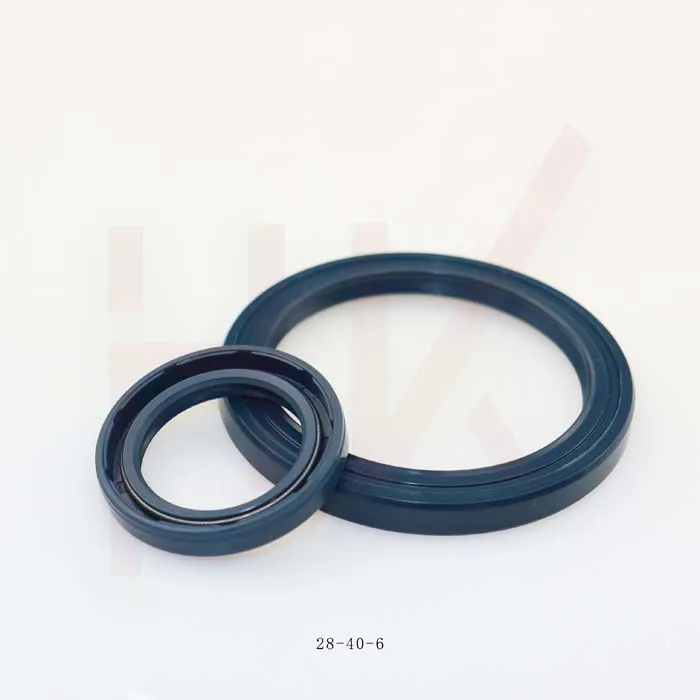dec . 06, 2024 09:15 Back to list
Understanding Hydraulic Ram Oil Seals for Enhanced Performance and Durability
Understanding Hydraulic Ram Oil Seals
Hydraulic systems play a critical role in various industries, from construction and manufacturing to automotive and aerospace. A key component in these systems is the hydraulic ram, which relies on oil seals to maintain efficiency and prevent leaks. In this article, we will explore the importance, functionality, and maintenance of hydraulic ram oil seals.
What is a Hydraulic Ram?
A hydraulic ram is a device that uses hydraulic pressure to convert energy from a fluid into mechanical energy. These rams are essential in lifting and moving heavy loads, as they can generate significant force with relatively little input energy. However, for optimal performance, the integrity of the hydraulic system must be maintained, which is where oil seals come into play.
The Role of Oil Seals
Oil seals are crucial components that prevent the leakage of hydraulic fluid from the system. They consist of a flexible rubber or polymer material that fits snugly around the moving parts of the hydraulic ram. The principle behind these seals is simple they create a barrier that contains the hydraulic fluid under pressure while allowing for movement. This functionality not only keeps the hydraulic ram operating efficiently but also protects it from contamination by dirt and dust.
Types of Oil Seals
There are several types of oil seals used in hydraulic rams, each designed for specific applications and conditions
1. Rotary Oil Seals These are used where there is a rotating shaft involved. They provide a seal against lubrication oils and can withstand high speeds and pressures.
2. Lip Seals Featuring a lip that makes contact with the shaft, these seals are highly effective in preventing leakage. They are commonly used in hydraulic cylinders.
3. U-Cup Seals Designed resembling a 'U,' these seals are often used in dynamic applications where axial movement occurs. They provide excellent sealing performance with minimal friction.
4. O-Rings Simple yet effective, O-rings are circular seals that can be used in various static and dynamic applications. They are popular due to their versatility and effectiveness.
Factors to Consider
hydraulic ram oil seals

When selecting oil seals for hydraulic rams, several factors must be taken into account
- Temperature Range The working environment of the hydraulic ram can significantly affect seal performance. Thus, it is crucial to choose oil seals that can withstand the operational temperature extremes.
- Fluid Compatibility Different hydraulic fluids can react differently with seal materials. Selecting seals that are compatible with the specific fluid used in the system is essential to prevent degradation.
- Pressure Ratings Oil seals must be rated for the maximum pressure to which they will be subjected. Choosing seals with appropriate pressure ratings ensures that they do not fail under stress.
- Material Properties The choice of material for the seals can impact their durability and performance. Common materials include nitrile rubber, fluorocarbon rubber, and polyurethane, each offering distinct advantages and limitations.
Maintenance and Troubleshooting
Regular maintenance of hydraulic ram oil seals is vital for ensuring their longevity and performance. Here are some tips
- Routine Inspections Regularly inspect the seals for signs of wear, damage, or leakage. Early detection can prevent more significant issues down the line.
- Fluid Levels Keep an eye on the hydraulic fluid levels, as low levels can lead to increased stress on the seals, resulting in leaks and potential system failure.
- Clean Environment Maintaining a clean environment around the hydraulic ram can reduce the risk of contamination, which could compromise seal integrity.
- Replace as Necessary Over time, oil seals will wear out and should be replaced to maintain system performance. Regular replacement intervals will depend on the application and operating conditions.
Conclusion
Hydraulic ram oil seals are essential components for maintaining the efficiency, safety, and performance of hydraulic systems. By understanding the importance, functionality, and maintenance of these seals, operators can ensure the longevity of their hydraulic rams and minimize downtime. A proactive approach to seal maintenance not only extends the life of the hydraulic system but also contributes to overall operational efficiency.
-
The Trans-formative Journey of Wheel Hub Oil Seals
NewsJun.06,2025
-
Graphene-Enhanced Oil Seals: Revolutionizing High-Pressure Oil Sealing
NewsJun.06,2025
-
Future of Hydraulic Sealing: Advanced Intelligent TCN Oil Seals
NewsJun.06,2025
-
Don’t Let a Broken TCV Oil Seal Ruin Your Day
NewsJun.06,2025
-
Bio-Inspired Dust Seals for Better Sealing Performance
NewsJun.06,2025
-
Biodegradable and Sustainable Hydraulic Seal Materials
NewsJun.06,2025
-
Top Oil Seal Solutions for Your Industrial Needs
NewsMay.22,2025
Products categories
















